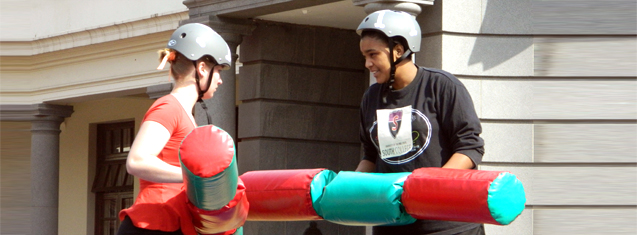
Kovsies, start flexing your thumbs, bulging your biceps and polishing your suit of armour – a new kind of Intravarsity is about to erupt.
Themed, ‘Made at Kovsies’, this year’s Intravarsity takes place from 8 – 10 August 2014. Kovsie students from Qwaqwa and Bloemfontein will again face each other in events ranging from soccer to volleyball, from table tennis to chess.
This time round, though, Intravarsity is throwing the net of friendly rivalry even further. A Gaming League will give computer gamers a chance to show their skill in cyber space. The Ultimate Frizbee championship will test contestants’ reflexes.
Students with nerves of steel can face each other in the Gladiator event or plunge into the 7-a-side rugby matches. Those with a gentler approach can join the Women’s Day fun run.
During the Kovsie United Music Festival, opponents can become friends at the Rag Farm on the Friday evening. Sêr finals will carry the beat into Saturday night with residences battling it out in song.